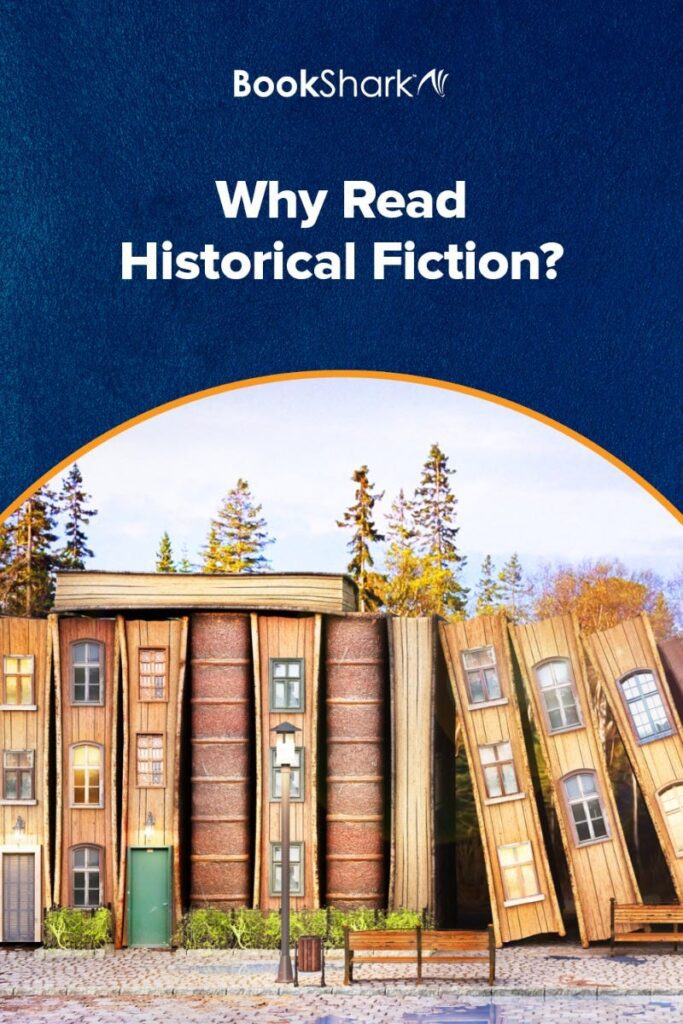




Why Read Historical Fiction?

Historical fiction is a big part of our homeschool. I believe that reading historical fiction greatly enhances both our understanding of history as well as our retention of facts from history.
That being said, you would be surprised how that flame got lit. It started long before I ever had children, long before I ever got married. In high school I had a history teacher who used historical fiction to teach. We would learn about a topic from the textbook, but we also had to read one historical fiction book from each unit. We wrote about these, we listened to each other present theirs, and we learned a ton. In fact, my favorite book to date is one I read that year for history.
Needless to say that my history teacher, and his means of teaching, really stuck with me. I encourage you to consider reading historical fiction as a solid and valuable means of learning history for the following reasons.
Historical Fiction Makes History Matter

When kids can get involved in a story by mentally putting themselves in a historical setting, they glean a whole new perspective on the names and dates on the page. Historical fiction makes history seem relevant and personal.
Historical Fiction Offers Food for Thought
Reading historical fiction gives kids a chance to learn empathy and compassion. It helps them to see the similarities that lie just underneath our differences. When they can sport similarities and difference in historical movements, time periods, and people, it helps them to dig deeper and think about the bigger pictures in their life and times.
Historical Fiction Brings Dates, People, and Facts to Life
Historical fiction makes the facts come alive. It gives the heroes and villains from history varied facets, bringing to life what was once only names and maps, printed in black and white.
Historical Fiction Brings to Light Multiple Perspectives
When reading from a textbook you typically get one perspective with the author’s or editor’s bias. When reading various works of historical fiction pertaining to a person or time period, children get to see multiple perspectives. For instance, when we were learning about the Titanic we stumbled upon a book called Ghosts of the Titanic. It was told from their perspective of those sent out to clear the bodies from the water, as opposed to from the side of someone on that voyage. This is a side we had never seen or even knew existed. Reading that book offered us a chance to see the situation from a different point of view.
For these reasons I encourage you to consider a literature-rich curriculum or at least to to include historical fiction in your plans for history. Even if you just include a book here or there as a supplement to your history studies, it could very well be the thing that lights a fire of interest, or open up a new perspective for your child.

About Our Author
Heidi Ciravola has been married to her husband for over seventeen years. Together they have three children with whom they began their homeschooling journey with in 2006 when their oldest was beginning second grade. Heidi is a mother, taxi service, and homeschool parent by day and an avid reader and homeschool blogger whenever there is time left over. You can visit Heidi at her blog Starts at Eight where she blogs about homeschool products and unit studies, homeschool organization and general tips, and homeschooling high school, as well as many book reviews, lists, and unit studies.